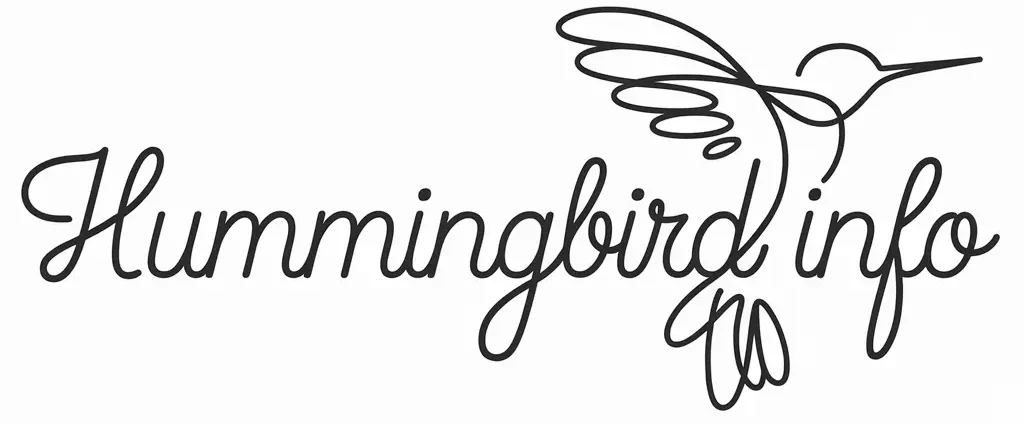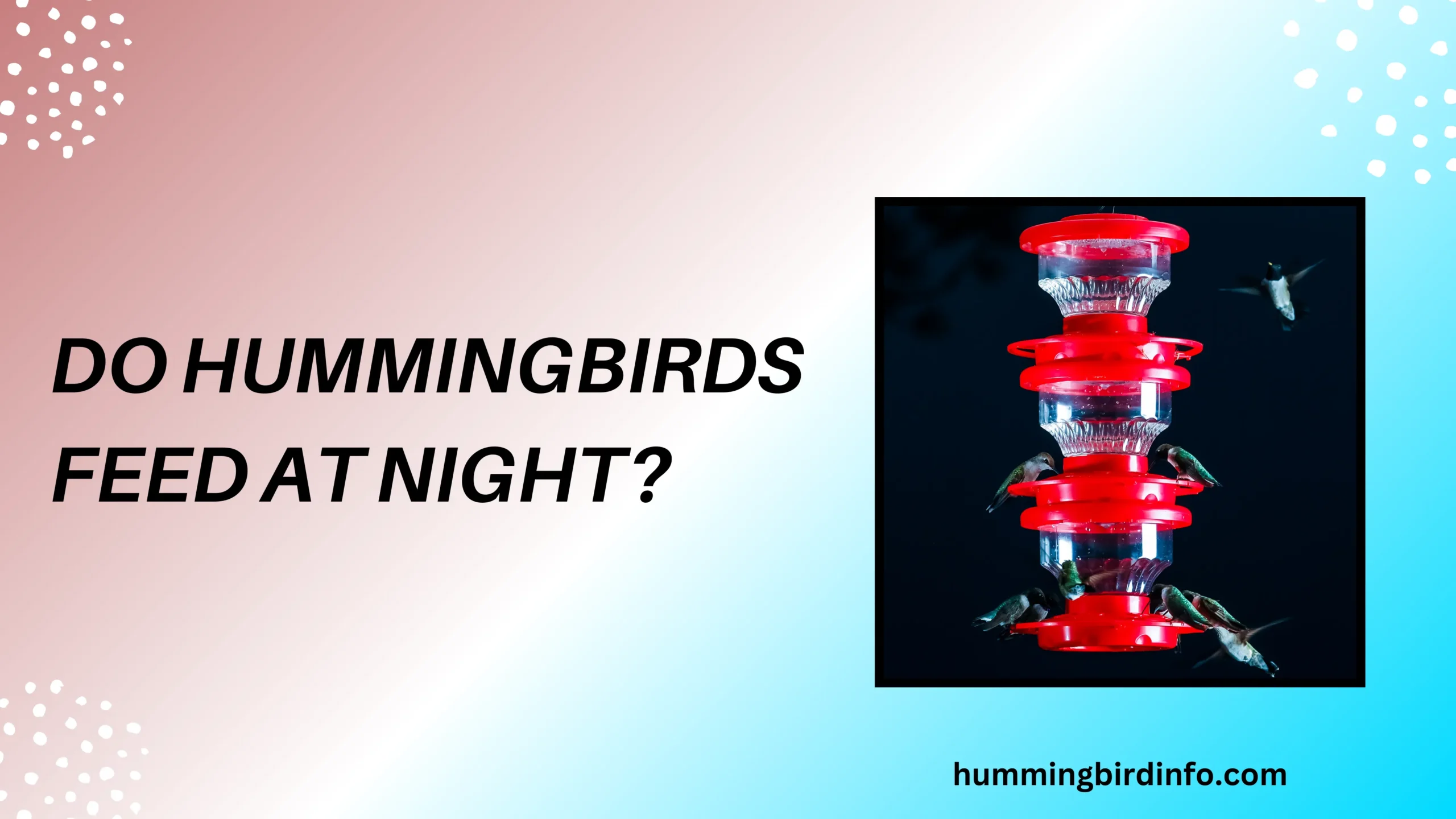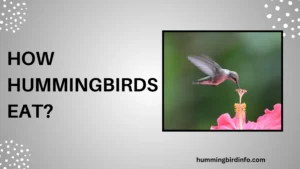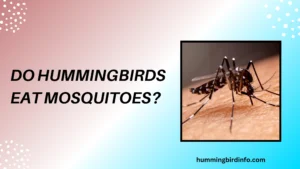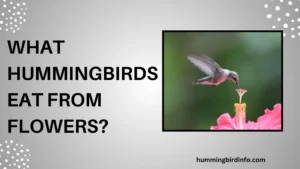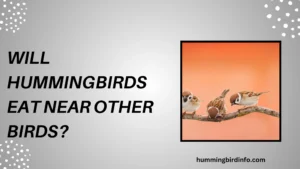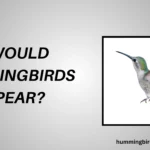The hummingbird is one of nature’s most remarkable little creatures. With its tiny size, shimmering feathers, and ability to hover in mid-air, it’s hard not to marvel at this fast-moving bird.
But beneath the beauty lies a biological engine that requires near-constant fueling—they must eat frequently just to survive.
These birds live fast—really fast. With heart rates that can exceed 1,200 beats per minute and wings flapping around 50–80 times per second, hummingbirds burn through energy at a speed few other animals can match.
Their primary diet of nectar and small insects provides them with the calories needed to keep up with their rapid metabolism. But here’s a curious question: do they ever feed at night?
Many people have reported sightings of what they believe are hummingbirds feeding in the dark, especially around well-lit porches. Could there be truth to it?
Or are these just cases of mistaken identity? In this blog post, we’ll explore the feeding patterns of hummingbirds, their use of torpor, the influence of artificial light, and what science and stories say about their behavior after dark. Let’s dive in.
Contents
1. Typical Hummingbird Feeding Patterns
Hummingbirds are diurnal, meaning they are active during the day and rest at night. They rely on sunlight to navigate their environment and locate food sources, especially bright-colored flowers rich in nectar.
These birds feed every 10–15 minutes throughout the day, visiting hundreds of flowers to meet their high energy demands. In addition to nectar, they consume tiny insects for protein, especially during breeding season.
Their peak feeding times are early morning—to recover from energy loss overnight—and late afternoon, as they stock up before entering torpor. This pattern helps them maintain the energy reserves they need to make it through the night.
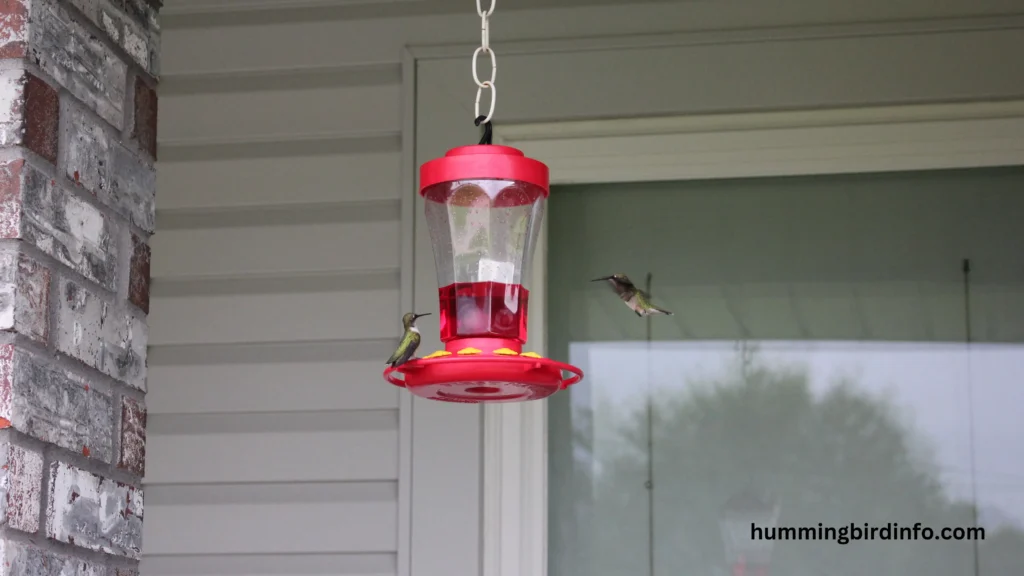
2. Torpor: The Hummingbird’s Nighttime Strategy
Torpor is a state of deep rest that hummingbirds enter during cold nights or when food is scarce. It’s like a nightly energy-saving mode that helps them survive periods without eating.
During torpor, a hummingbird’s body temperature drops, its heart rate slows, and its breathing becomes shallow. This reduces energy use by up to 95%, allowing it to survive the long, foodless night.
Torpor is not sleep—it’s more extreme. Waking from torpor takes a significant amount of energy, often fueled by stored fat. That’s why feeding before nightfall is so critical for them.
3. Factors Influencing Potential Nighttime Activity
While hummingbirds usually rest at night, some unusual factors might push them to feed after dark. One key influence is artificial light, which can confuse their natural rhythms.
Streetlights or porch lights may trick them into thinking it’s still daytime, leading to rare instances of night feeding. These behaviors are more likely in urban areas where light pollution is high.
Other factors include extreme weather, food shortages, and migration. For example, the Ruby-throated hummingbird, known for its non-stop flight across the Gulf of Mexico, might feed at odd hours if resources are found mid-journey. Still, these cases are rare and not part of their normal routine.
4. Research and Anecdotal Evidence
There is limited scientific research on hummingbirds feeding at night. Most studies focus on their daytime behavior, metabolism, and use of torpor.
However, birdwatchers and homeowners occasionally report sightings of hummingbirds at feeders well past sunset. Some claim that artificial lights attract the birds, who then resume feeding for a short time.
Yet, some of these observations may be due to mistaken identity. Sphinx moths, also called hummingbird moths, are nocturnal and closely resemble hummingbirds in flight and feeding behavior—making them easy to confuse.
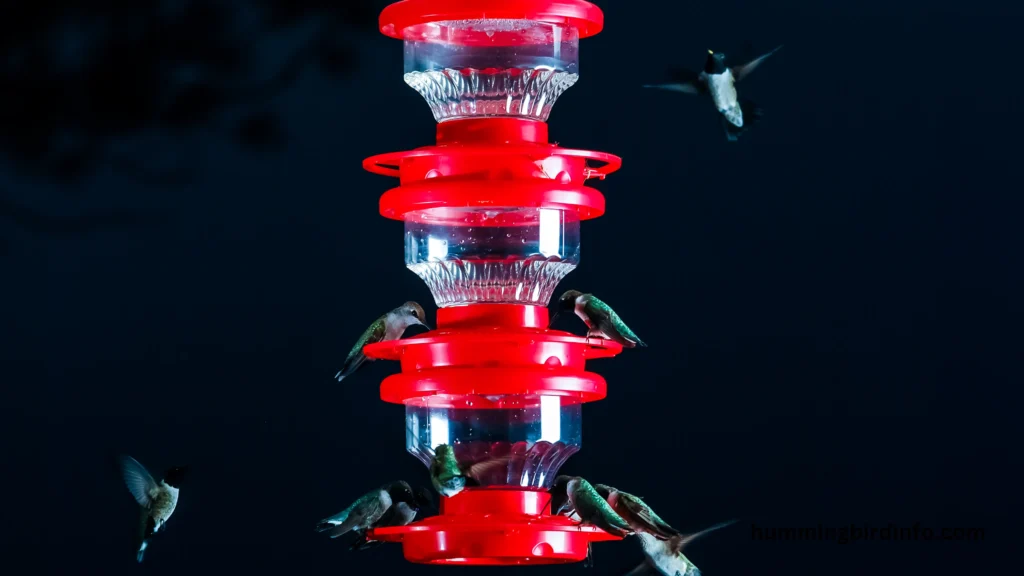
5. Ecological Implications of Potential Night Feeding
If hummingbirds were to feed at night regularly, it could disrupt their natural energy cycles. Feeding at night would interfere with their ability to enter torpor, risking energy depletion by morning.
It could also expose them to nocturnal predators, such as owls, bats, or cats, which they usually avoid by being inactive at night. Their vulnerability during darkness is a serious concern.
Night feeding might also affect plant-pollinator dynamics, though hummingbirds are not typically involved in nocturnal pollination. If such behavior increased, it could subtly alter ecosystem interactions.
Conclusion
Hummingbirds are incredible energy machines, spending most of their waking hours feeding and flying. They rely on a carefully timed routine of intense daytime activity followed by energy-conserving torpor at night.
Though they are not known to be nocturnal feeders, certain conditions—like bright artificial lights, unusual weather, or migration—could lead to rare instances of night activity. Still, these are exceptions, not the rule.
The mystery of night-feeding hummingbirds continues to fascinate scientists and bird lovers alike. Until more research is done, it’s safest to say that hummingbirds usually feed only during daylight—and spend the night in a deep, motionless rest, conserving their energy for another busy day.
FAQs
1. Do hummingbirds ever feed at night?
Hummingbirds are primarily diurnal, meaning they feed during the day. While rare night feeding may happen, it’s not common behavior.
2. What is torpor in hummingbirds?
Torpor is a state of low metabolic activity that hummingbirds enter at night. It helps them conserve energy by lowering their body functions.
3. Can artificial light make hummingbirds feed at night?
Yes, artificial lights like porch or garden lights can sometimes disrupt their natural cycle, leading to brief feeding at night.
4. What do hummingbirds eat?
They mainly eat nectar for energy and small insects for protein. Their diet supports their high metabolism and constant movement.
5. Can hummingbirds see at night?
Their vision is adapted for daylight, so they do not see well in the dark. That’s one reason why they avoid feeding at night.
6. Do all hummingbirds go into torpor?
Most hummingbirds enter torpor nightly, especially in cooler climates. It’s a natural part of their energy-saving strategy.
